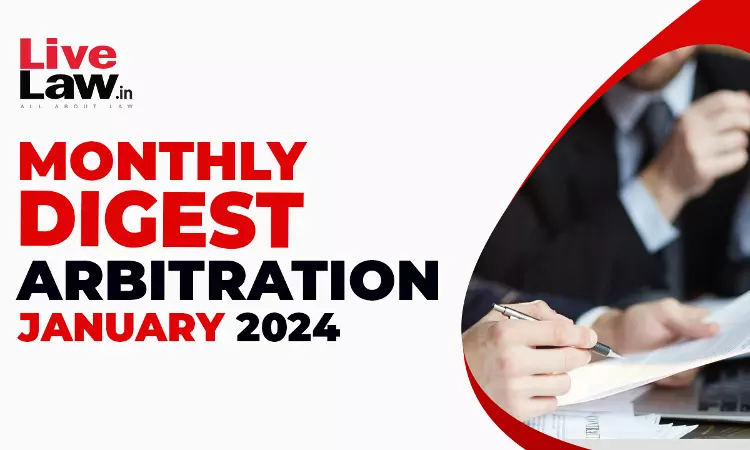Arbitration Monthly Round-Up: January 2024
Rajesh Kumar
9 Feb 2024 9:00 AM IST
Supreme Court Arbitral Awards Cannot Be Modified Under Sections 34 & 37 Of Arbitration & Conciliation Act : Supreme Court Case Title: S.V. Samudram v. State of Karnataka Citation: 2024 LiveLaw (SC) 14 The Supreme Court has reiterated the settled position of law that any attempt to “modify an award” while adjudicating Sections 34 and 37 petitions is not...
Next Story



